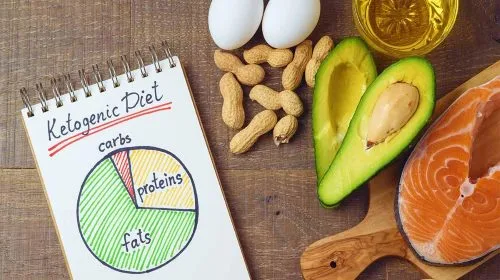Are you familiar with the ketogenic diet? Going against the tide of many other diets, it is becoming increasingly popular in the West. It is very effective in weight loss, but also has many interests for athletes. Because of its special nature, this diet should ideally be accompanied by medical follow-up. So, what do you need to know about the ketogenic diet?
What is the ketogenic diet?
The ketogenic diet is a diet that targets weight loss and athletic performance gain, including endurance. It has been around for almost a hundred years. Originally, the ketogenic diet was imagined for patients with epilepsy. Today, and since the 1980s, it is back in fashion with the Paleo diet. Many believe that the ketogenic diet is a close cousin of the low-carb diet. It is interesting to note that the ketogenic diet is neither more nor less than the daily and ancestral eating practice of some peoples, perpetuated even today by the Inuit, the Mayans, or some Amerindian tribes.
The ketogenic diet was invented in 1921 by Dr. Russell Wilder in Minnesota. He wanted to replicate the effects of fasting in a diet that could be maintained indefinitely. Fasting had beneficial results in treatment-refractory epilepsy patients. Indeed, depriving the brain of sugar seemed to protect it from seizures. When the body lacks glucose, it enters a state of "ketosis" and then converts fat into energy.
While for several decades, the food industry has presented us with a pyramid of food needs with carbohydrates at the base of the latter, the ketogenic diet completely challenges this mode of eating. What are its principles?
The principles of the ketogenic diet
The ketogenic diet consists largely of promoting lipids in one's diet, leaving room for some proteins and especially very few carbohydrates. However, we know that the body's fuel comes first from carbohydrates, then fats, and finally proteins. This diet is therefore inspired by fasting to force the body to draw its energy from our fat reserves. It forces him to produce "ketones", a source of energy from fats stored in the body. And this is in order to replace carbohydrates as fuel.
As part of a keto diet, you greatly reduce your carbohydrate consumption. Fat intake is increased to prevent muscle wasting and promote ketosis. If the body drew on proteins, there would be a catabolic effect with risks of muscle atrophy. In ketosis, metabolism uses ketone bodies for its energy needs instead of glucose.
Ketone bodies are created from fatty acids. It is a more stable source of energy than glucose, derived from carbohydrates. People who follow this diet enter ketosis after 3 to 7 days. But for this, they must consume less than 30 grams of sugar per day.
How to start a ketogenic diet?
Ideally, you should start with basic food rehabilitation. Replace processed food with healthy foods as much as possible and stop sugary snacking. Discover the list of keto foods to favor and those to avoid.
Ketogenic Diet: Prohibited and Permitted Foods
List of foods to be avoided
Cereals, pasta, pieces of bread, rice, croissants, pancakes, wraps, potatoes, corn, wheat, flour, and even quinoa.
Starchy vegetables: beans, peas, and lentils.
Limit omega-6, pro-inflammatory, contained in sunflower, grape seed, and corn oils. Choose monounsaturated fatty acids (omega 3) such as olive oil.
Processed fats, such as margarine.
Sweets: desserts, milk chocolate, pastries, snack bars, confectionery...
The benefits of the ketogenic diet on the practice of sport
The ketogenic diet has been shown to have positive effects on weight loss. As it pushes our body to draw energy from our fat reserves, it can significantly reduce the fat mass that composes it. This is a diet followed by many weight loss people.
After a period of adaptation to the change in diet, cravings disappear. Blood tests are improving. People who follow this ketogenic diet experience a real improvement in their physical condition. And they practice it precisely to improve their sports performance.
The ketogenic diet may improve the body's ability to control systemic inflammation. This type of inflammation occurs after intensive sports practice. Ketones, present in optimal amounts in the body, are beneficial in reducing fatigue after exercise.
The health benefits of the ketogenic diet
But we talk a lot about this dietary solution in the context of certain chronic diseases. As in the fight against certain cancers. According to several studies, it would reduce the risk of Alzheimer's, epilepsy, diabetes, heart attack, stroke, etc. Thanks to ketones, the body would deliver energy to healthy cells and neurons. This source of energy then helps to counter certain diseases such as cancer for the former, and Alzheimer's for the latter.
It would seem that healthy cells feed mainly on fat. Cancer cells feed mainly on sugars, including complex sugars (including glycogen). By depriving them of their favorite source of energy, and boosting healthy cells, a diet high in fat and very low in glucose would help the body to better defend itself. Finally, the ketogenic diet is known to be ideal for suppressing oxidative stress.

